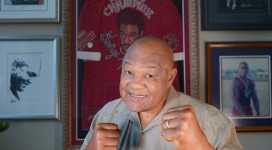
WASHINGTON (NRB) - With Facebook CEO Mark Zuckerberg set to appear before House and Senate committees this week in the wake of intense congressional concerns over data privacy, Dr. Jerry A. Johnson, president & CEO of National Religious Broadcasters, is urging committee members to press Zuckerberg also on the growing problem of online censorship at Facebook and other Big Tech platforms.
"I welcome these hearings and congratulate Mr. Zuckerberg for being willing to speak to representatives of the American people," Johnson said. "I would respectfully suggest that, in the interest of protecting our republic's foundational freedoms, Members of Congress should discuss with Mr. Zuckerberg instances of apparent targeted censorship of Christian and conservative viewpoints on his ubiquitous platform and those of other tech giants."
To that end, NRB believes Zuckerberg - and other Big Tech CEOs - should be asked questions like the following:
- In November, FCC chairman Ajit Pai said that edge providers "routinely block or discriminate against content they don't like." How do you respond to this serious charge?
- A Catholic university's ad with a picture of the historic San Damiano Cross was rejected by Facebook over Easter. Thankfully, Facebook corrected the action within a few days. Still, that it happened at all is deeply disturbing, especially since it's only one of many similar cases of censorship. What was so "shocking, sensational, or excessively violent" about the ad to cause it to be initially censored?
- Is Facebook a public square? If so, what obligation does that place on Facebook regarding censorship of viewpoints on its platform?
- "Hate speech" can be a nebulous term, but a very serious accusation. How do you define it, do you rely upon outside organizations in making such evaluations (if so, which), and what are examples of where you may draw the line between what is and is not hate speech?
- Why not proactively delineate a community standard for free speech and free exercise of religion on your platform that is nothing less than that guaranteed by the First Amendment? That standard, refined by centuries of American jurisprudence, would enable the rightful blocking of content that threatens violence or spews obscenity, without trampling on the openness and freedom your company publicly embraces. As an American company operating in this space of speech, why "re-invent the wheel"?
At a December news conference at the National Press Club, NRB launched Internet Freedom Watch (InternetFreedomWatch.org) to draw attention to the censorship of Christian and conservative speech by companies such as Facebook, Google, Twitter, and Apple. NRB sent letters to those tech giants urging constructive conversation and a resolution to this swelling problem. The letter to Facebook is available here. So far, neither Zuckerberg nor his colleagues have formally responded. NRB also called on Congress to hold hearings on online viewpoint censorship.
NRB has tracked instances of viewpoint censorship of Christian and conservative viewpoint on the internet with a timeline, starting in 2010 when Apple removed Chuck Colson's Manhattan Declaration from its iTunes App Store. For more, see the IFW timeline, "Viewpoint Censorship on the Internet."
Johnson added, "The problem of online privacy is real; so is the problem of online censorship. We hope Members of Congress will seek answers from Mr. Zuckerberg and other tech leaders about their commitment to consumers' otherwise lawful free speech."
About NRB
The National Religious Broadcasters (NRB) is a nonpartisan, international association of Christian communicators whose member organizations represent millions of listeners, viewers, and readers. Our mission is to advance biblical truth, promote media excellence, and defend free speech. In addition to promoting standards of excellence, integrity, and accountability, NRB provides networking, educational, ministry, and fellowship opportunities for its members. Learn more at www.nrb.org.
About the NRB Convention
The annual NRB International Christian Media Convention is the largest nationally and internationally recognized event dedicated solely to assist those in the field of Christian communications. The dynamic Exposition consists of around 200 companies and is an active marketplace for those seeking tools and services to expand their organizations. The next Convention will be held at the Anaheim Convention Center in Anaheim, California, March 26-29, 2019. For more information, go to www.nrbconvention.org.







